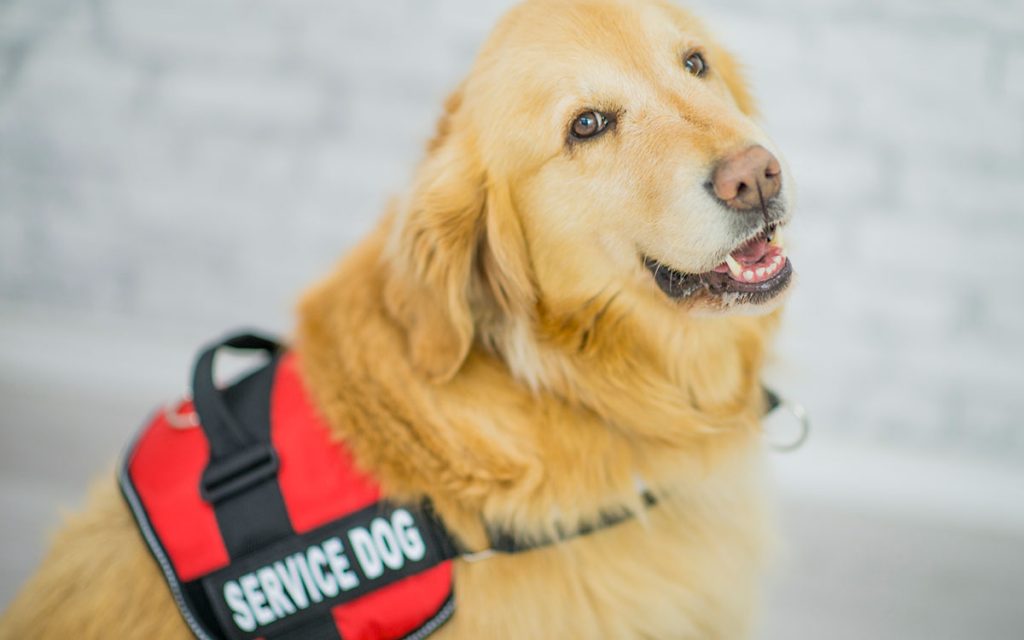Dogs save lives. They sniff out bombs and drugs. They help rescue stranded mountain climbers after an avalanche. They put out fires. (What’s that? Okay, I’m being told fire dogs do not actually handle the hoses themselves).
But they also save lives in little ways: helping a blind woman cross a busy street, giving comfort to troubled kids, and providing companionship to an everyday friend.
Service animals are really essential to those who truly depend on them–and dogs are among the most common of all service animals. Service dogs hold a special place, and offer unique benefits, for those who are coping with deafness. So if you’re hard of hearing, get a dog!
When a service dog is appropriate
It’s hard to prescribe precisely when a service animal is or is not appropriate for any given individual. It’s up to you! Well, it’s up to you and a medical professional, usually.
Most people are going to have specific medical reasons for adding a service dog to the family. In the case of those who are hard of hearing, service dogs are usually recommended when an individual does not respond well to hearing aids or when hearing aids no longer work at acceptable levels.
Consider your specific needs
That’s not to say you shouldn’t or can’t request a service dog if you currently use hearing aids. It’s just that most people have a very specific reason in mind when they get a service dog.
(By the way, if your specific reason is “companionship and friendship,” you don’t need a service dog for that…a regular dog works too. And they are amazing.)
What can a service dog do for those hard of hearing?
For those who are hard of hearing, a service dog is usually trained to perform several specific tasks, including:
- Waking you up when your alarm goes off in the morning.
- Letting you know when someone has rung the doorbell or knocked on the front door.
- Alerting you to other noises or alarms, such as a smoke detector.
- Getting help if you become injured or immobile.
- Letting you know when your name has been said or someone is trying to get your attention.
In order to perform all of these tasks, service dogs require specialized training. Most of these dogs train for months just to learn how to differentiate sounds. The idea is that whoever the service dog is assigned to will depend on that animal for all kinds of daily tasks as well as in the event of an emergency.
So these pups really need to be prepared for anything.
The benefits of a service dog for those with hearing loss
Wouldn’t it be easier and more effective just to have hearing aids? Hearing aids are certainly less expensive. (It costs tens of thousands of dollars to train service dogs properly–they’re basically rock stars.) For most people, yes. But hearing aids don’t work the same for everyone. And cochlear implants aren’t always a viable option either.
For those people especially, service dogs provide an essential connection to the outside world. When you can’t hear a thing, it’s very easy for you to hole up in your house and isolate yourself. This isolation is, well, bad–cognitively, mentally, and emotionally.
For someone suffering from hearing loss, a service dog is a tether to the outside world. Imagine your father or mother (or yourself)–feeling much more confident and likely to travel into the world knowing that a service animal is there to help. The service animal becomes a way for someone to maintain his or her independence.
Do you need a new best friend?
There are plenty of reasons you should adopt a dog (they’re adorable!). Inviting a service animal into your life is a much more complicated decision than a typical adoption. That’s why it’s a decision that’s usually made with the help of a medical or hearing professional–with great deliberation and thought.
It’s also a decision that can change your life.


